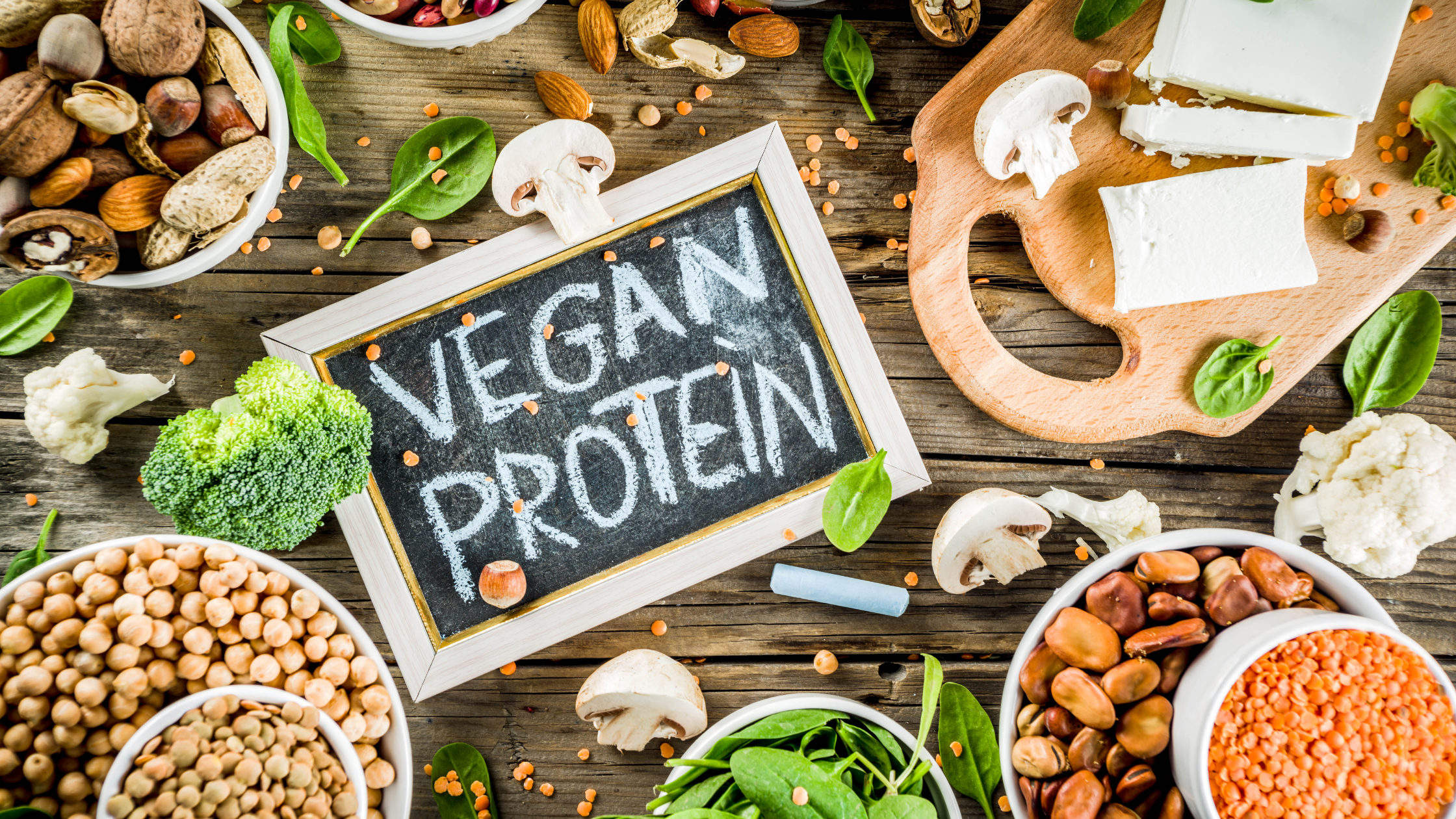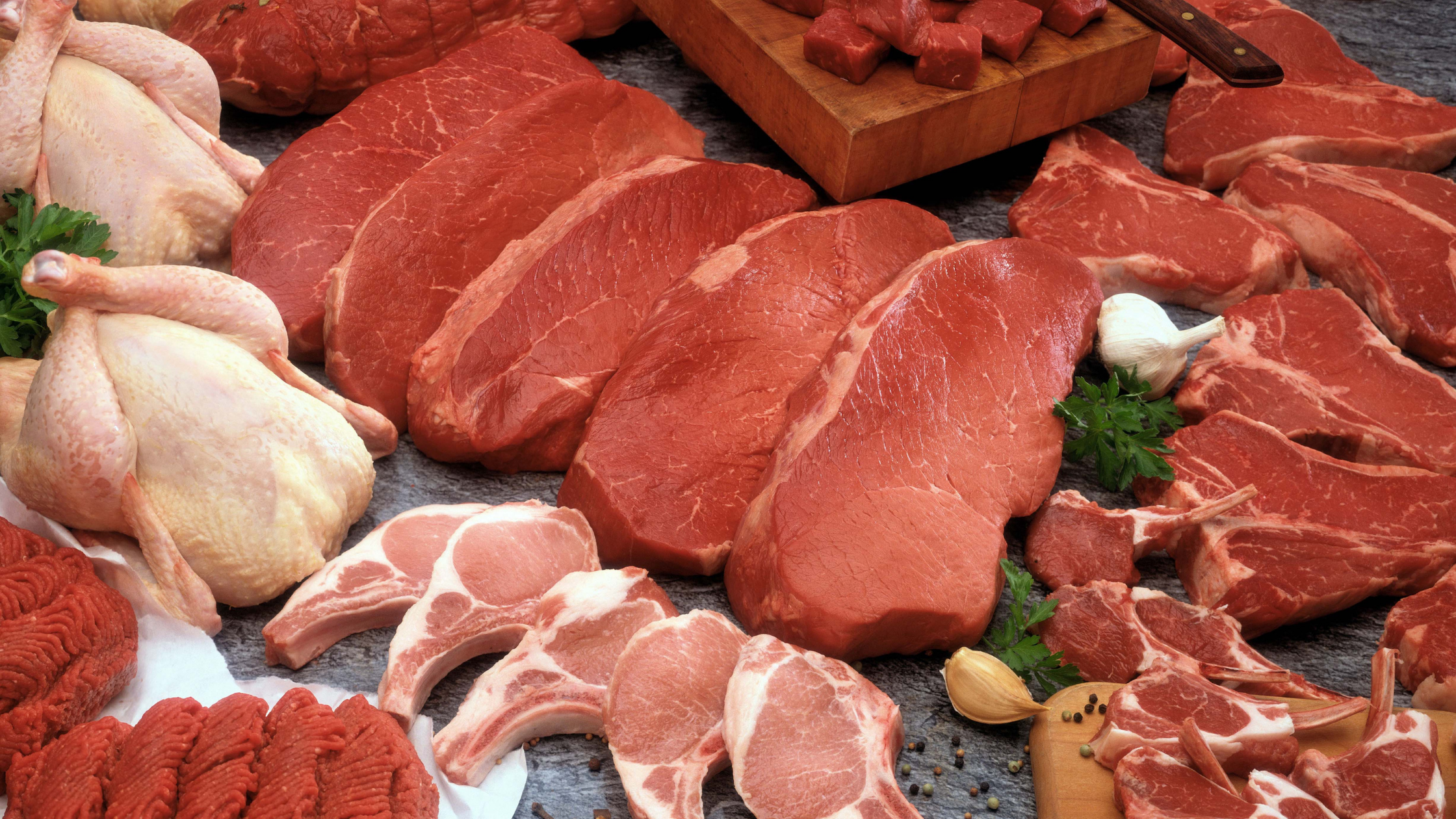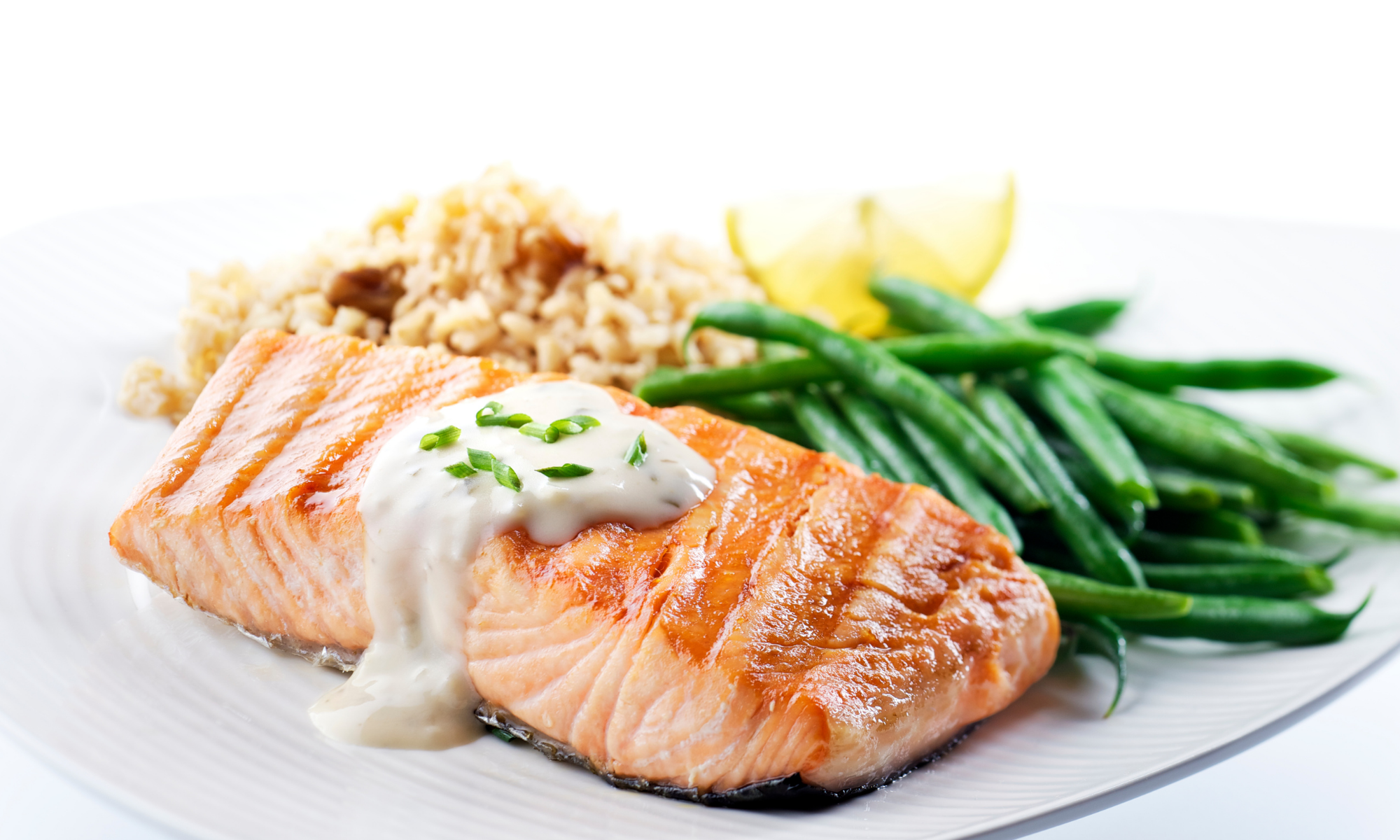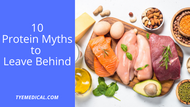10 Protein Myths to Leave Behind for Good
Written by TYE Medical on Dec 3rd 2021
If you feel like you can’t tell the difference between protein myths and solid facts, you’re not alone. There just isn’t enough reliable, consistent information when it comes to daily protein guidelines. The RDA (recommended daily allowance) for protein is 0.8 grams of protein per kilogram of body weight to meet your basic nutritional needs. In other words, it’s the minimum you need to keep from getting sick.
But do Americans eat too much or too little protein? Well, that depends on who you ask or which website you click on. And to complicate matters further, there’s now an ongoing public debate about protein sources and supplements. So, what do you need to know to stay proactive about your health? Consider these protein myths and correlating facts that can help you make informed choices.
Protein Myth #1: It’s Only Important for Muscle Development
Two 
If you’re not a bodybuilder, why should you care about how much protein you consume daily? Since protein is an essential nutrient comprised of amino acids, it’s also a crucial component of other tissues like:
- Bones
- Joints
- Ligaments
- Tendons
- Antibodies
- Hair
- Cholesterol (HDL and LDL)
- Enzymes
Protein also supports your immune system and regulates glucose levels.
If you’re chronically deficient in protein, you’ll see effects that reach far beyond muscle loss. For more information about the effects of lacking dietary protein, refer to our article How Much Protein Do I Need? 10 Signs You’re Not Getting Enough .
Protein Myth #2: Overindulging in Protein Causes Kidney Problems
This is only true if your kidneys are already unhealthy due to an underlying kidney or liver disease. Healthy kidneys efficiently filter and excrete excess protein byproducts like nitrogen. If you’re planning to increase your protein intake, do so gradually to give your body time to adjust to the changes.
It is helpful to diversify your protein, deriving it from both plant and animal sources.
Protein Myth #3: Cut Back on Protein to Lose Weight
Higher levels of protein actually boost metabolism and increase satiety hormones that keep you feeling fuller longer. In other words, it helps you burn fat and staves off hunger between meals. If you cut back on protein and expect to lose weight, you’re fighting an uphill battle you can’t win. If you’re eating adequate protein, you’ll naturally consume fewer calories because you’re less hungry.
Protein Myth #4: You Can’t Get Enough Complete Protein from Plant-Based Diets

Further research has proven this claim false. While it’s true that few plant proteins are complete (containing all nine essential amino acids), you can consume a variety of plant-based proteins throughout the day to get the quality amino acids you need. For instance, beans or rice alone won’t give you a complete protein, but combined, they’re a perfect protein duo.
Plant-based protein includes foods like:
- Beans
- Lentils
- Nuts/seeds
- Tofu
- Edamame beans
- Tempeh
- Whole soy products
Other complementary sources of plant-based protein include:
- Whole grains (like brown rice, quinoa, buckwheat groats)
- Certain veggies (like broccoli, peas, and spinach)
You want to ensure that you’re getting all the essential amino acids in your diet daily because muscle repair and maintenance stop if you don’t get enough complete protein in 24 hours.
Protein Myth #5: You Can’t Get Too Much Protein
Ever hear of gout? It happens when you have high blood levels of the waste product uric acid. Uric acid levels rise when you’re digesting protein. When you overindulge in protein for too long, you can develop painful gout symptoms. But this is just one reason to replace more of your beef with veggies.
Since the average American chooses proteins high in saturated fat, like beef, pork, and an abundance of poultry, overeating can elevate your risk for coronary artery disease, as well as high cholesterol and blood pressure. And this can also cause weight gain.
It’s helpful to offset some of your animal protein with the plant-based choices outlined above.
Protein Myth #6: Eating Meat Causes Cancer

If you’ve thought about tossing the sirloin in your freezer—first, consider these facts. Your most significant colon cancer risk comes from eating processed meats like bacon, sausage, ham, jerky, and some deli meats. The World Health Organization classifies processed meats as Group 1 carcinogens, meaning that these foods have been shown to cause cancer in some people. If you’re a bacon lover, it’s probably time to scale back your consumption. But what about those steaks in the freezer?
Red meats like beef, pork, veal, and lamb are considered Group 2 carcinogens, meaning there is some evidence that consuming these foods can increase your cancer risk. Limited amounts of red meat (minimally processed kinds) are not likely to significantly elevate your cancer risk.
But if you’re interested in reducing your colorectal cancer risk, then opt for a diet of veggies, fruits, and fish.
Protein Myth #7: Cheese Is a Great Protein Option
In a perfect world, this would be true. Unfortunately, the delectable food’s high protein content (like 10 grams per 1.5 ounces of cheddar) comes with a massive liability in the form of sodium, calories, and saturated fat. When you weigh the pros and cons, relying on cheese to boost your protein levels doesn’t seem like a good plan.
If you’re a die-hard cheese lover, you can opt for lower-fat options like mozzarella, feta, and cottage cheese, but even these should be limited in quantity and frequency. Just keep in mind that cheese should never be your primary protein source.
Protein Myth #8: You Should Consume More Protein Bars and Powders

As convenient and well-marketed as these protein supplements might be, they come with some complications. They’re highly processed (down to powder form), which means they’re not going to stick with you as long as you’d like. But more importantly, many varieties are high in sugar, artificial sweeteners, and preservatives. And of course, they’re quite pricey!
Conventional nutritional wisdom says not to rely on protein powders, bars, or shakes for the bulk of your protein. But if you choose to incorporate a serving each day, be sure the sugar content is five grams or less, with little or no artificial sugar. Look for additive-free products and are sweetened with stevia, monk fruit, dates, or a bit of honey.
Protein Myth #9: Activity Level Shouldn’t Affect Protein Intake
Muscles require protein to rebuild and maintain tissue. So, if you’re an athlete or pumping it out at the gym—hard—you’ll need almost double the protein as a more sedentary person. Your stressed muscle tissues will require additional protein, especially after a serious workout.
According to Men’s Health , a 20-gram protein snack post-workout is optimal for supporting muscle repair. Any more than this has little additional benefit. And if you can’t get that high-protein snack in immediately, no worries. While sooner is better, your muscles will benefit from protein for 24 hours after working out.
Protein Myth #10: Older Adults Don’t Need as Much Protein

This one couldn’t be less true. Whether you’re active or not, older adults require more protein than their younger counterparts. Since muscles loss is a natural part of aging and begins at age 40, increasing protein consumption to build and maintain muscle is even more critical.
After exercise, older adults require double the amount of protein as they did in their younger years, and more sedentary seniors need about 50% more protein than the minimum RDA requirement.
How Should I Manage the Protein in My Diet?
It’s best to look at the big picture. When considering a protein source, think about the other nutrients (or lack thereof) you’re consuming. What negatives come along with this food? While red meats have their place, don’t eat more red meat and poultry to increase your daily protein intake. That’s not necessarily the answer.
Instead, strive to eat at least 20-30 grams of protein per meal and incorporate more plant-based and seafood sources. This will allow you to continue enjoying meats and poultry without the health risks. And the plant-based additions will increase your daily protein levels to stimulate metabolism and bolster weight loss.
Quality Protein Sources
Animal Protein
| 3 ounces cooked turkey or chicken | 19 grams |
| 3 ounces tuna, salmon, haddock, or trout | 21 grams |
| 6 ounces plain Greek yogurt | 17 grams |
| ½ cup cottage cheese | 14 grams |
| 1 cup dairy milk | 8 grams |
| 1 egg | 6 grams |
Plant-Based Protein
Keep in mind that it’s best to consume various plant-based proteins, even pairing different types together. This will give you the complete proteins, or nine essential amino acids, you need each day.
| 1 cup (6 ounces) Tempeh | 31 grams |
| 1 cup (5.5 ounces) edamame, shelled | 17 grams |
| ½ cup (4.5 ounces) Tofu | 10 grams |
| 1 cup quinoa | 8 grams |
| ½ cup cooked beans | 8 grams |
| 1 cup cooked pasta | 8 grams |
| ¼ cup (1 ounce) nuts | 7 grams |
| 1 cup brown rice | 5 grams |
A Nutritious Diet Doesn’t Cure Bladder Leaks

While a healthy diet and eating the right amount of protein is an enormous health boost, it won’t solve all your bladder problems. Be sure to protect yourself from leaks as you take proactive steps toward a healthier lifestyle.
TYE Medical’s online store offers premium incontinence products for light to heavy leaks (and everything in between). Try our auto-ship options and discreet, free shipping on all orders! Click here to learn more about our unique Two-Piece System.


